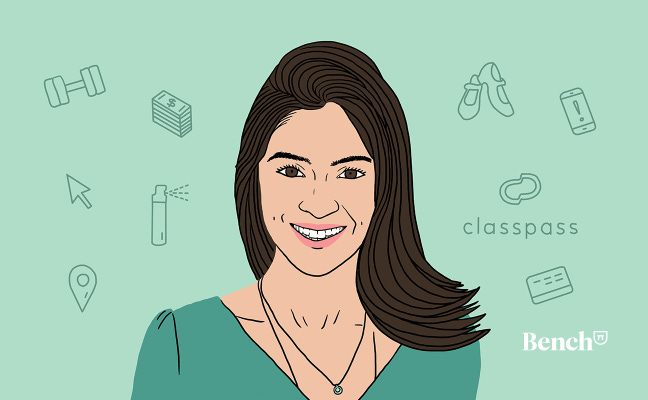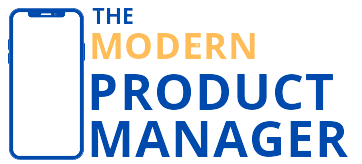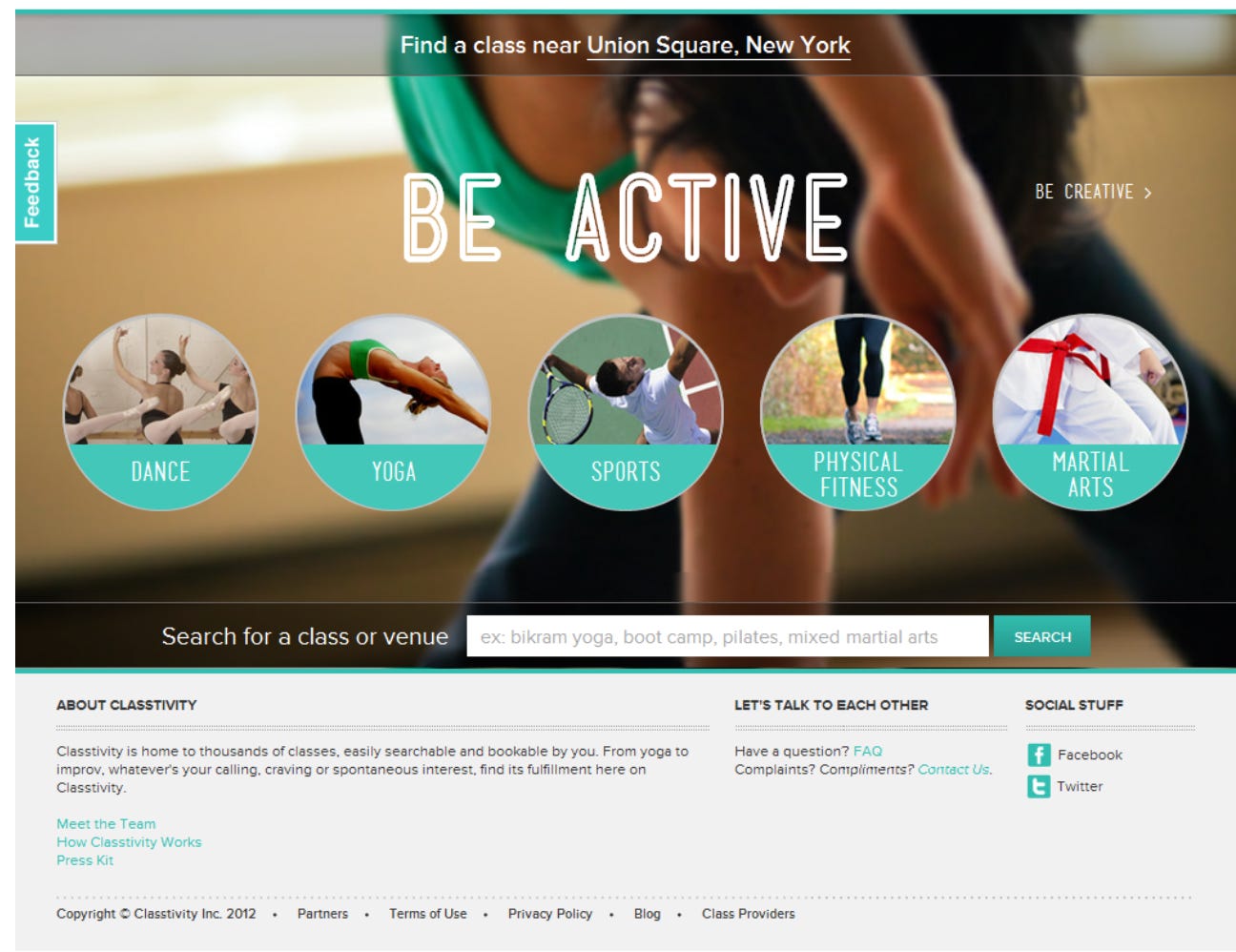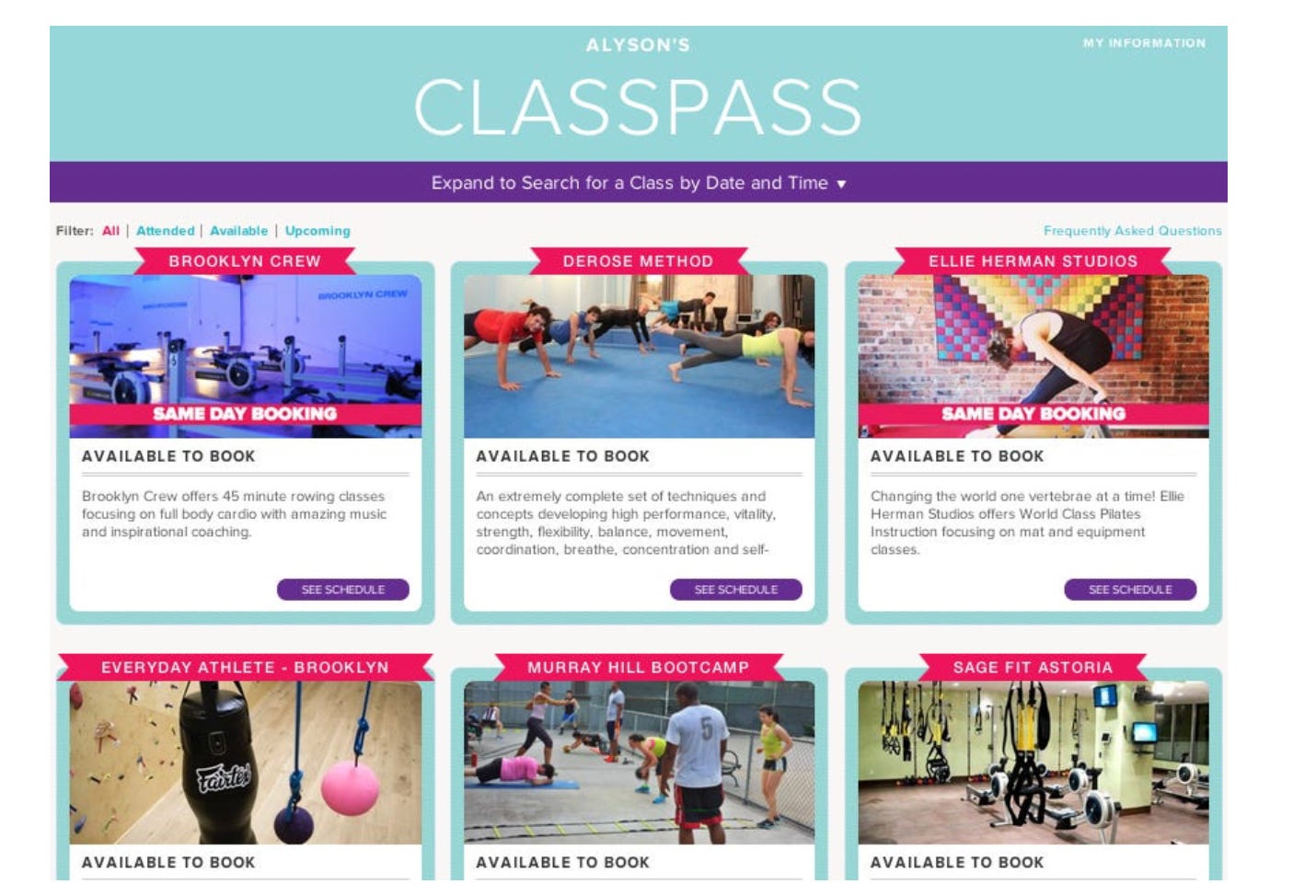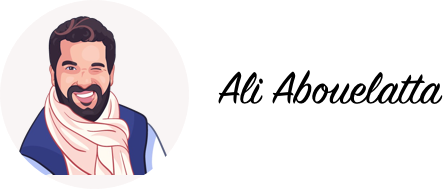🏋🏻♀️Classpass
How Classpass got their first 1000 customers?
Hello 2021,
I can not be more excited about this week’s issue of First 1000. For the 300+ people that signed up since our last issue Welcome to the family 🤓. As a recap, this weekly newsletter is about how companies got their first 1000 customers. Our company today is Classpass.
If this was forwarded to you by a smart friend sign up ⬇️
Sponsored By
If you enjoy First 1000, you will definitely enjoy reading The Modern Product Manager. You’ll find courses built by Alex Mitchell, a 4x Product Leader and 1x Founder & other technology leaders.
Whether you’re an aspiring Product Manager, a brand-new Product Manager, or a Product Manager looking to level-up, there is a course for you.
Inspiration
Be in love with the problem, not the product
The story of Classpass is a story of resilience. Payal Kadakia, Founder and now Executive chairwoman of the billion-dollar fitness, wellness, and beauty membership startup ClassPass, dedicated her entire life adult life to dancing. She would miss night outs to go dancing, she left her last performance review at Bain Consulting early to go to dancing practice, and two years before starting Classpass, she started a dance studio, "The Sa Dance Company," where she still performs shows to this day (at least before the covid-19). Payal found refuge in dance; as an Indian immigrant and MIT graduate, she persistently had an internal conflict between her American and Indian identities. Dancing was a way to bring those two closer together and a means of self expression. For Payal, she wanted more people to experience the joy of dancing and feel the way she did after each performance. That was her why. It is imperative that the "why" comes from a deep place, from a moment, a feeling, or a realization; this is perhaps the only way to keep going when things don't go your way. In Payal's case, it took four years and three major product pivots before she finally was able to find the right solution to the problem. Throughout the journey, this serendipitous moment of joy after each dance practice was what kept her going. She knew how powerful exercising was to one's mental and physical health, and her mission was to get more people to experience that.
Backstory
Straight out of MIT, Payal joined the Bain consulting group where she spent the first three years of her career. In a performance review, her manager asked, "if this (consulting) was what she wanted to do for the rest of her life?" Deep down, she knew it wasn't, but she wasn't ready yet to take the risk and go all-in on entrepreneurship. So she took what she calls a "mini-risk" to build up that risk-taking muscle. Payal would soon leave Bain to join the music industry behemoth Warner Music Group where she worked on licensing deals with Daniel Ek at Spotify and the partnerships team at Youtube. Taking that job gave her some bandwidth to start building a dance company on the side (since consulting was an 80 hour/week kind of job). This mini-risk gave her the time to build her confidence up, and after two years she quit her job to finally start a company!
Payal explains how Classitivity (the precursor to ClassPass) came to be
I went out to San Francisco for a friend's birthday in 2010, and all my friends were building apps. I remember being like, "You do this full time?" They were like, "Yeah." I realized, What if I thought of an idea? I felt like I could build something. So I said to myself, I'm going to take two weeks to see if I can think of an idea. If I can think of an idea I care about, maybe this is worth it. A day and a half after I got back, I went online to look for a ballet class. I end up on the traditional four or five dance studios that I know. I have seven tabs open. I can't figure out which one to go to. One's at 6:15. One's at 6:30. I don't know if the teacher is good. I don't know if it's a beginner. Do I have the right stuff? An hour goes by, and I don't pick which class to go to, and I never go to class that day. And I remember that day, starting to think, Wow, so many people are always looking for classes. What if I could build a search engine for classes? It doesn't exist, and it's something that I think a lot of people would find useful.
Champagne Success - Classtivity
100 Reservations - 18 months
In February 2011, Payal started officially working on Classitivity. The idea of Classtivity was simple; it was a search engine featuring thousands of classes, expert recommendations, and tips that they scrapped from all over the internet. Classtivity was gorgeous; Payal and her team had spent 16 months working on it before they finally launched to the public. Throughout those first 16 months, Payal joined the startup accelerator Techstars, raised a few hundred thousand dollars, and had been on the cover of __Inc Magazine. She was also featured in Mashable, Business Insider, Gigaom, and almost every tech and business blog. For many on the outside, that was what success looked like. But in reality, Classtivity was making a meager 10 bookings/month despite all the press and buzz around the company. Whereas the entire premise of the business was generating millions of leads to the boutique studios and getting paid a small referral fee on each booking/lead they generate. This is a classic case of "Champagne success"; when you are bombarded by false indicators of success (PR, Money raised, Keynote speeches..etc.) day in and day out, but in reality, success is the furthest thing from the truth at that point.
For the next three months, Payal would go into what she describes as the "summer of buttons."
So, in the middle of the summer, we started playing with buttons. I always remember I call it "the summer of buttons," 'cause we were contemplating—well, maybe it's cause the color's wrong, or the shape is wrong. We thought it might be a UI problem, and it wasn't.
It is incredibly easy to fall prey to trying to solve things under your control, especially when things aren't going your way (changing the UI experience, adding more features, redesigning your website). It is rather hard to face the music and go back to your original hypothesis and say, "I was wrong...why was that? and what I can learn from it?"
After going through this gruesome experience, Payal realized she needed to take massive swings. She needed to experiment with big ideas that moved the needle. After spending nearly two years working on Classtivity with a meager 100 or so reservations to show for it, she went back to the drawing board and asked herself, what was wrong with Classtivity?
Passport
20,000 Reservations - 6 months
In the fall of 2012, commencing the end of the "Summer of Buttons," Payal started working on a new idea to drive reservations, which she debuted as Passport. she identified three major problems to solve:
How to minimize the number of decisions users need to make at one time.
How can they rapidly experiment with different ideas? The first version of Classtivity took 16 months (plus two extra months of optimizing UI).
How can they confidently measure success with leading rather than lagging metric. While the number of reservations was a decent indicator, it was deceptive. Committing to a healthier lifestyle is hard, and having many people going to a fitness class once or twice a year would be detrimental to the Classtivity business.
To answer these questions, Payal paused the building of scrapers and APIs and went on a tour asking every fitness studio she could, "How do you get people to class?" She started calling up users who signed up to Classtivity and asked them what she needs to do to get them to class. A simple yet powerful realization was that most studios offered the first class for free (and still do).
The fruit of Payal's labor from interviewing studios and customers and trying to solve the three identified problems with Classtivity was Passport. Passport was a $49 one-off purchase for new users to try out up to 10 classes in 30 days (with an average saving of 60%). Passport solved the first problem by separating the purchase decision from going to class, as Payal this concept below.
You buy it (Passport) at a completely different point. Then the next day, when you're ready to go to class, we've made you think, 'Well, I have credits, so I should use them.' People always tell us they feel like a kid in a candy store... the product minimizes the number of decisions users need to make at one time, thereby reducing friction and increasing ability to capture and convert a user.
With Passport (and later on Classpass), Payal was as scrappy as one could be. She didn't spend months designing the pixel perfect product. Instead, she decided to do things as manually as possible. Reed Hoffman, Cofounder of Linkedin and General Partner at Greylock, would often say, "if you are not embarrassed by your first release, you launched too late." With Passport, Payal took this advice to heart; for her, time to market was of the most essence at this point. Anything that any measure she could take to accelerate time to market, she did, and everything that prolonged that was a distraction.
We started building the product to do what it needed to for the customer. Most of the stuff on the backend was either done manually or didn't work. Someone would make a class reservation at this time, and I would get an email. Then I would go and make the reservation manually. Instead of building out the perfect booking system, what I needed to figure out at this point was what was going to motivate people to make a reservation and then go to class. The rest didn't matter.
The product became a product because of the insights and the learnings we got from directly interacting with our customers — on top of the technology. But we had to guide the technology with our thinking and our learning. Those many days I spent inputting reservations manually turned into another valuable stream of customer insights. I quickly learned not to book reservations right away, as half of the cancellations came within 15 minutes of booking. That became an important part of the design of our cancellation policies.
The Passport launched in December 2012 and was a quick hit. Reservations were finally coming in — 20,000 in the first six months alone.
As for measuring success, Payal explains.
Once the product started working, the number of reservations per person became the clearest representation of true north... I'd rather have 150 people using it weekly than 1,500 attending the occasional class.
Classpass
100,000 Reservations - 2-3 months
It is easy to draw lines of how Passport would evolve to Classpass but, in fact, the development was completely accidental. Payal noticed that some of the users who have purchased the Passport were trying to cheat the system; they would create new accounts after the 30 days expired and continue exploring different fitness studios all around New York.
This pattern of behavior was antithetical to the hypothesis behind the Passport. When Payal created the Passport the underlying thesis was that it was an easy, frictionless way for users to "window shop" different fitness studios before committing to the one they love. But with more and more people trying to cheat the system, it was apparent that people didn't want to commit to just one place; they liked the flexibility and variety of Passport. The key insight was that having a "bag of classes" subscription model was in itself a value proposition for the user rather than an acquisition tactic or a lead gen tool as Payal had previously envisioned.
Building Classpass wasn't a no-brainer. The Passport was a profit machine for starters since the studios offered all these introductory classes for free in hopes of getting customers later on. Payal bundled all these different offerings into a $49 one-off purchase....100% of that $49 price tag went back to Classtivity. On a deeper level though, it wasn't sustainable because as Payal realized that users not going back to the studio and purchasing a membership meant that the studios were giving away all these classes for free and not getting much in return. So in March 2013, 3 months after the launch of Passport, Payal started working on Classpass. For $99, users can sign up for local classes from hundreds of studios ranging from Barry's Boot Camp to Exhale Spa to Flywheel Sports. ClassPass worked with each venue on an agreed-upon referral rate and pocketed the rest of the monthly subscription. Users can only register for the same venue three times per month so ClassPass doesn't cannibalize its partners' loyal customers and pricing.
Classpass officially launched in March 2013, and within 2 months, the team had hit an aggregate of 100,000 reservations between the Passport and Classpass
I remember when we hit 100,000 reservations, a few months after we launched ClassPass. We have a nice photo. We had around six employees then, and we all brought our sneakers in and we wrote 100K on the floor and took a photo
1000 Classpass Subscribers.
Once Payal found her footing with the $99 Classpass product, it was time to turn on the growth machine. Throughout the past 3 years Payal had only raised $500k. After three unsuccessful attempts to raise further money in 2012, Payal shifted her focus to hit $1m in run rate before the end of 2013 (9 months after the launch of Classpass). That was the magic number in the bay area at the time to get the company to its next round of funding. To hit 1m run rate, she needed 1000 customers each paying $99/month.
Classpass x Lululemon
Beyond the press and word of mouth, the most successful growth lever to get the first 1000 Classpass subscribers were offering new members a $100 Lululemon gift card, if they stay with the service for six months. Usually, companies provide you introductory promotions to start using their service, but Payal wanted users to build a long forming habit. From the moment you sign up, users were motivated to hit that six months milestone, and over time, built up the muscle memory of having Classpass as part of their daily/weekly routine. While it was perhaps one of the biggest levers for Classpass growth early on...it did not last very long
One day I get to the office and there's like a letter on my desk and I open it and it's a cease and desist from Lululemon.. God… and I remember you know, my first instinct was like, oh no, should I be scared? But then I was like, oh my God Lululemon knows who we are, it was one of those moments where I remember celebrating kind of because we were so small right and to sort of be on the radar of a company like that.
Referral Marketing
People wanted to talk about Classpass; it was a novel product (One subscription for all your fitness classes). Classpass aggressively went after fitness blogs. People would start talking about the Classpass experience and what its like to visit 10 different studios or try out 10 various activities in 30 days. The idea was novel enough that people felt they had something valuable to say about it.
Going unlimited
After the inital success of Classpass and after securing $4m in funding by the beginning of 2014, Payal was ready to take Classpass to the next level. Up until the end of 2013 Classpass was still a product offering within Classtivity. At the beginning of 2014, Classtivity was rebranded as Classpass, and all the other products (including the very profitable Passport) were killed to focus the company on growing Classpass.
The biggest hit for Classpass in 2014 was a summer promotion campaign from memorial day to labor day. Instead of having ten classes/month for $99, you will get unlimited classes throughout the three summer months. The promotion was so successful that it caught the eyes of every wanna-be entrepreneur. Within weeks tens of copycats emerged in cities all around the world (Classpass was just in New York at the time) offering unlimited classes for $99.
Going Global
Payal's hand was forced, that summer promotion ended up being the new Classpass business model (for a few years at least). The unlimited model was like pouring fuel on the fire. The company would double or even triple its userbase every 1-2 months. Over the course of the next 6 months, Payal managed to raise $52m and embarked on a mission to take Classpass to 40 cities all over the world over the next two years. There was a new Classpass clone in every major city, and with a healthy balance sheet, Payal was able to knock them down one after the other just like dominos.
Refer 5 people in January -> get $25 gift card
Thats it for today, see you next week 😉

